At least 13 civilians killed in air strike on Ukrainian bread factory

Mail This Article
Lviv/Irpin: Moscow offered Ukrainians escape routes to Russia and its close ally Belarus on Monday, drawing cries of outrage from Ukraine, where officials said a bread factory had been hit by an air strike in the latest Russian bombardment.
The bodies of at least 13 civilians were recovered from rubble after factory in the town of Makariv in the Kyiv region was hit, local emergency services said. Five people were rescued of the 30 believed to have been there at the time. Reuters was not immediately able to verify the reported attack.
The Russian offer preceded a planned third round of peace talks on Monday between Ukrainian and Russian negotiators. Earlier rounds produced little but pledges to allow humanitarian access that have not been successfully implemented.
Two days of failed ceasefires for the besieged southern port city of Mariupol have left hundreds of thousands trapped without food and water under relentless bombardment.
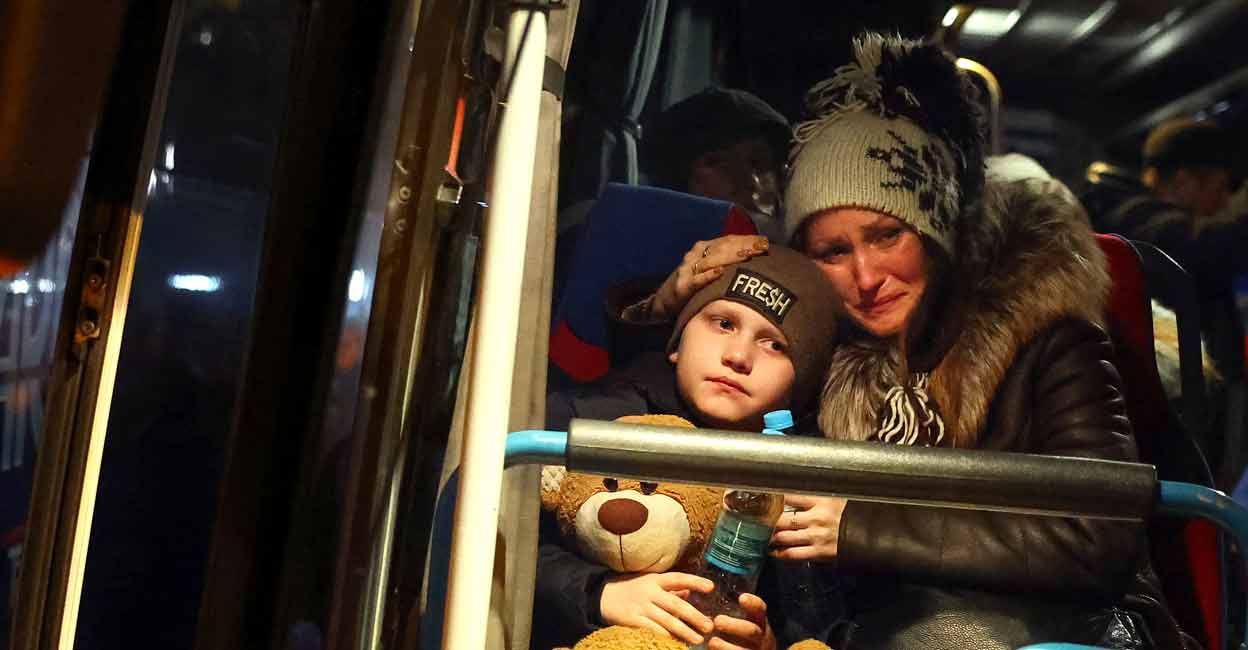
As Russian and Ukrainian delegations assembled for the talks, a Ukrainian negotiator urged Russia to stop its assault on Ukraine, which the United Nations said had sent 1.7 million people fleeing to Central Europe.
"In a few minutes, we will start talking to representatives of a country that seriously believes large-scale violence against civilians is an argument," Ukrainian negotiator Mykhailo Podolyak said on Twitter. "Prove that this is not the case."
Under the Russian offer, a corridor from Kyiv would lead to Russia's ally Belarus, while civilians from Kharkiv, Ukraine's second biggest city, would be directed to Russia, according to maps published by the RIA news agency.
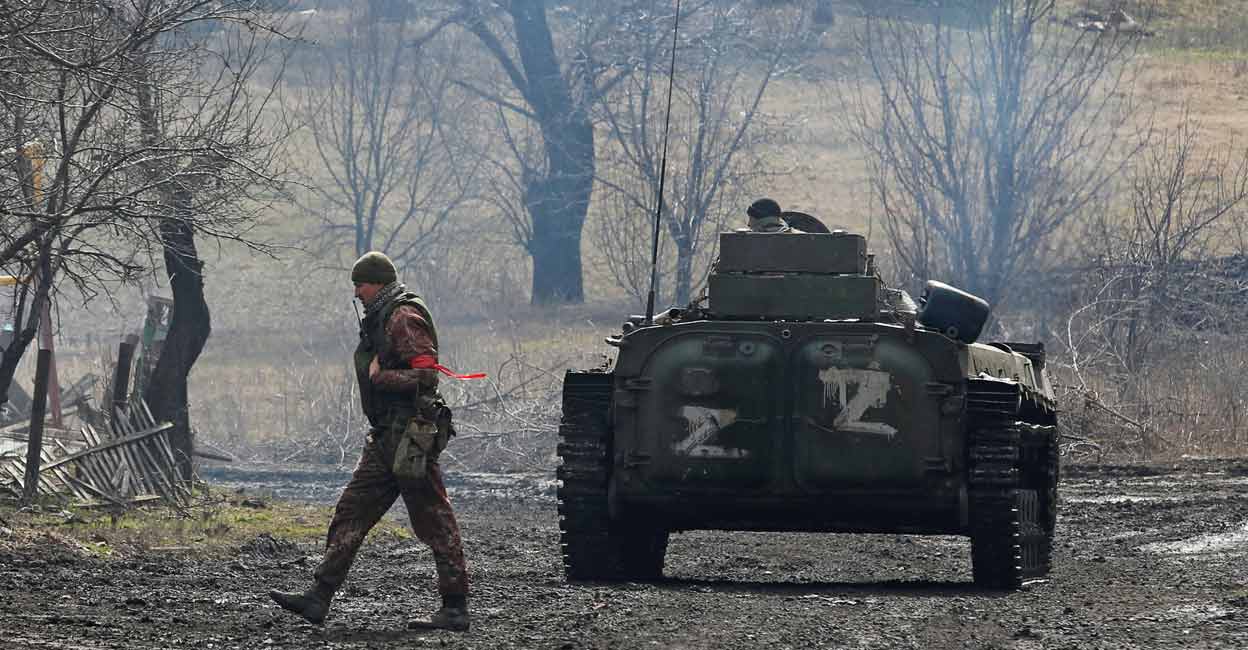
"Attempts by the Ukrainian side to deceive Russia and the whole civilised world ... are useless this time," the Russian defence ministry said after announcing the "humanitarian corridors".
A spokesperson for Ukrainian President Volodymyr Zelenskiy called the proposal "completely immoral" and said Russia was trying to "use people's suffering to create a television picture".
"They are citizens of Ukraine, they should have the right to evacuate to the territory of Ukraine," the spokesperson said.
In response to Russia's actions, Western nations have placed heavy sanctions on Moscow to isolate it from global commerce. Leading international businesses have cut ties and it is even being ostracised by sports and entertainment bodies.
Russia is the world's biggest exporter of oil and gas and oil prices spiked to their highest levels since 2008 as the United States and European allies considered banning Russian oil imports.

Russia and Ukraine are also both among the world's main exporters of food and industrial metals.
Russia denies deliberately targeting civilians. It calls the campaign it launched on February 24 a "special military operation" to disarm Ukraine and remove leaders it describes as neo-Nazis. Ukraine and its Western allies call this a transparent pretext for an invasion to conquer a nation of 44 million people.
The general staff of Ukraine's armed forces said Russian forces were "beginning to accumulate resources for the storming of Kyiv", a city of more than 3 million, after days of slow progress in their main advance south from Belarus.
Diving for cover
Ukraine said 2,000 civilians had been evacuated from Irpin, a Kyiv suburb that has been under heavy attack. Reuters journalists in the town on Sunday witnessed residents running for their lives, carrying small children, pets and bags of belongings. Families dove for cover as explosions burst in the town and flames shot up into the sky. Panting with exhaustion and shock, they were helped onto buses by Ukrainian troops.
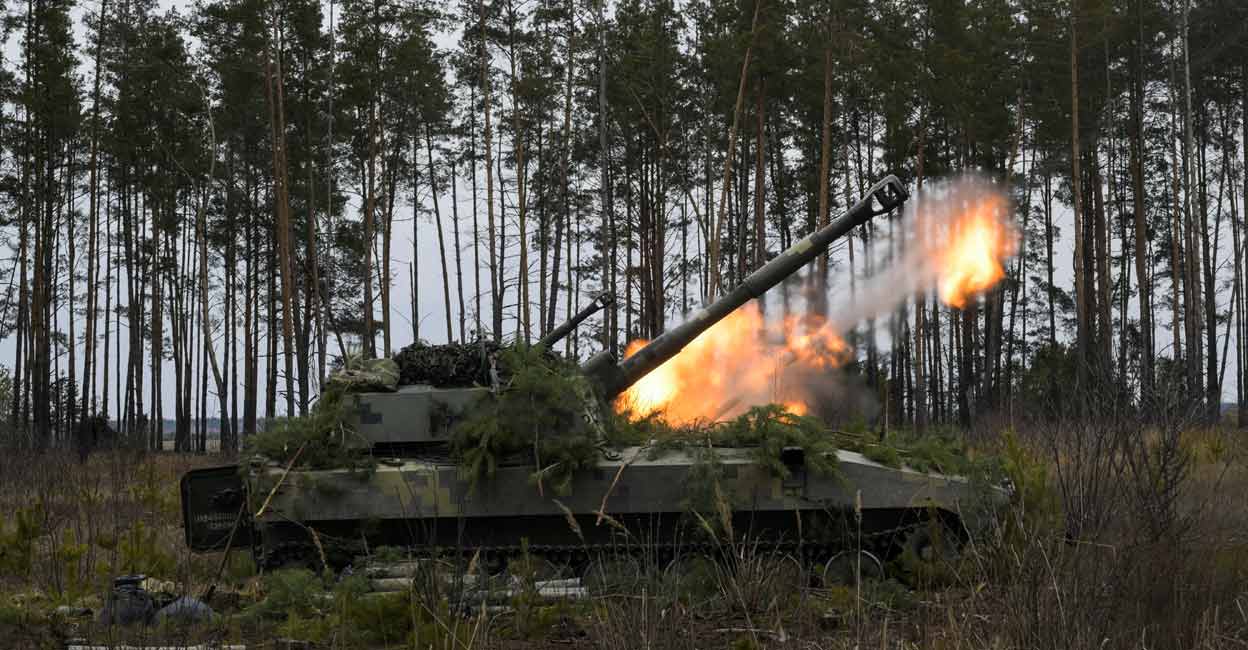
The situation was quieter on Monday in Irpin where Ukrainian police released footage of more civilians making their way out. But in Mariupol, deputy mayor Sergei Orlov said there were continuous air bombing raids on the city overnight.
Orlov told CNN authorities were ready to evacuate 6,000 people on Saturday but the Russians had bombed 29 big municipal buses that were to transport them. Moscow has accused the Ukrainians of blocking the planned evacuations.
Ukraine said on Monday its forces had retaken control of the town of Chuhuiv in the northeast, site of heavy fighting for days, and of the strategic Mykolayiv airport in the south, which the regional governor said was under tank fire. Neither claim could immediately be verified.
The United Nations called for safe passage to reach people cut off from lifesaving aid across Ukraine. In a humanitarian update it described one psychiatric hospital 60 km (40 miles) from Kyiv, running out of water and medicine with 670 people trapped inside, including bedridden patients with severe needs.
The WHO said at least six people had been confirmed killed in nine attacks on health care facilitaties since the start of the war.
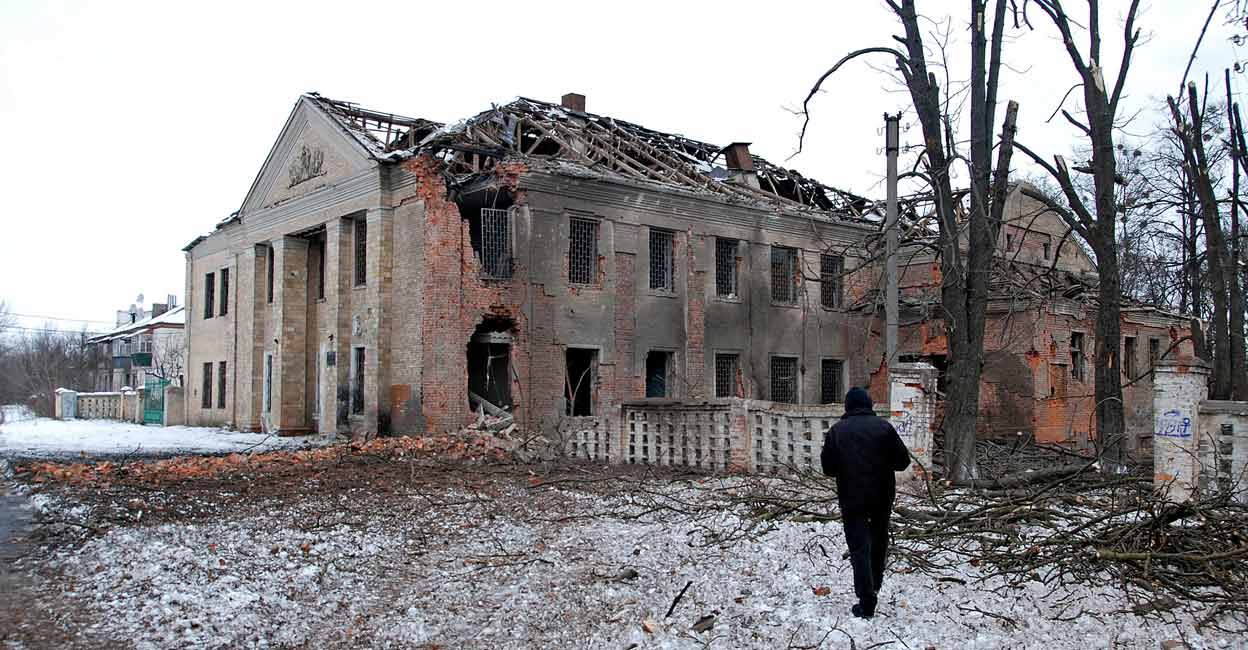
Kremlin spokesman Dmitry Peskov told Reuters Moscow would halt operations if Ukraine ceased fighting, amended its constitution to declare neutrality, and recognised Russia's annexation of Crimea and the independence of regions held by Russian-backed separatists.
Ed Arnold, an analyst with Britain's Royal United Services Institute said Russia would need to try to consolidate the gains it has already made and pause to mobilise more forces unless the pace of the assault picked up.
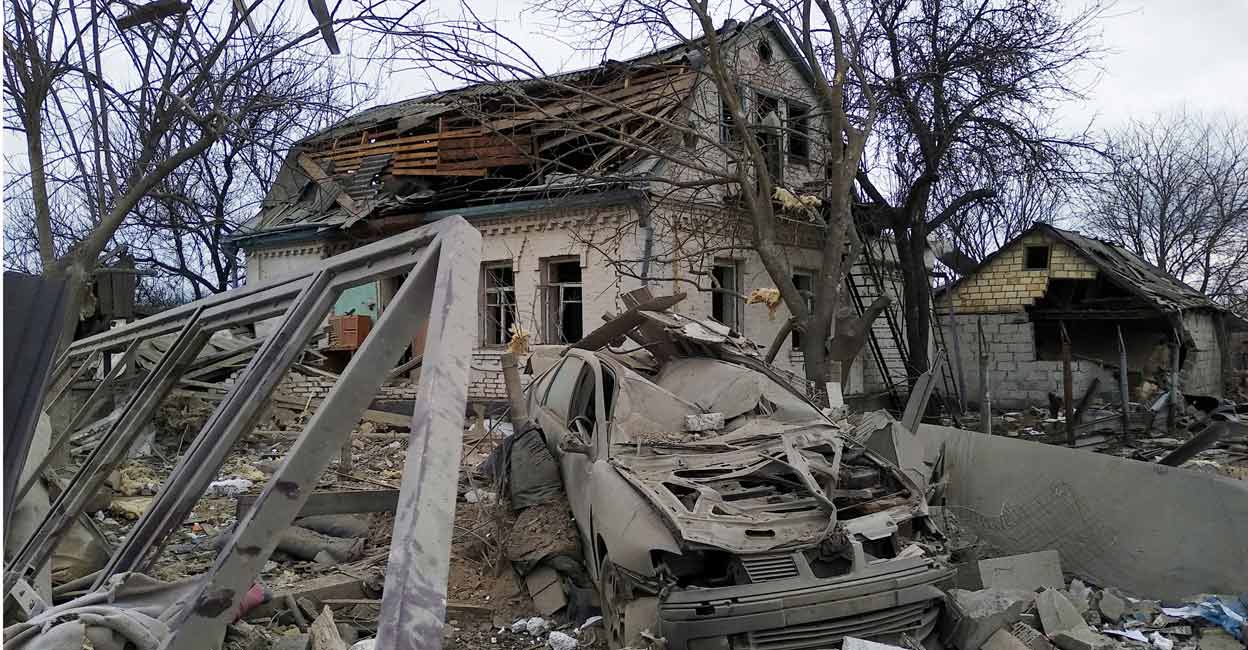
"At the current rate of Russian losses ... we do have indications that this operation would be unsustainable within about three weeks," he said.
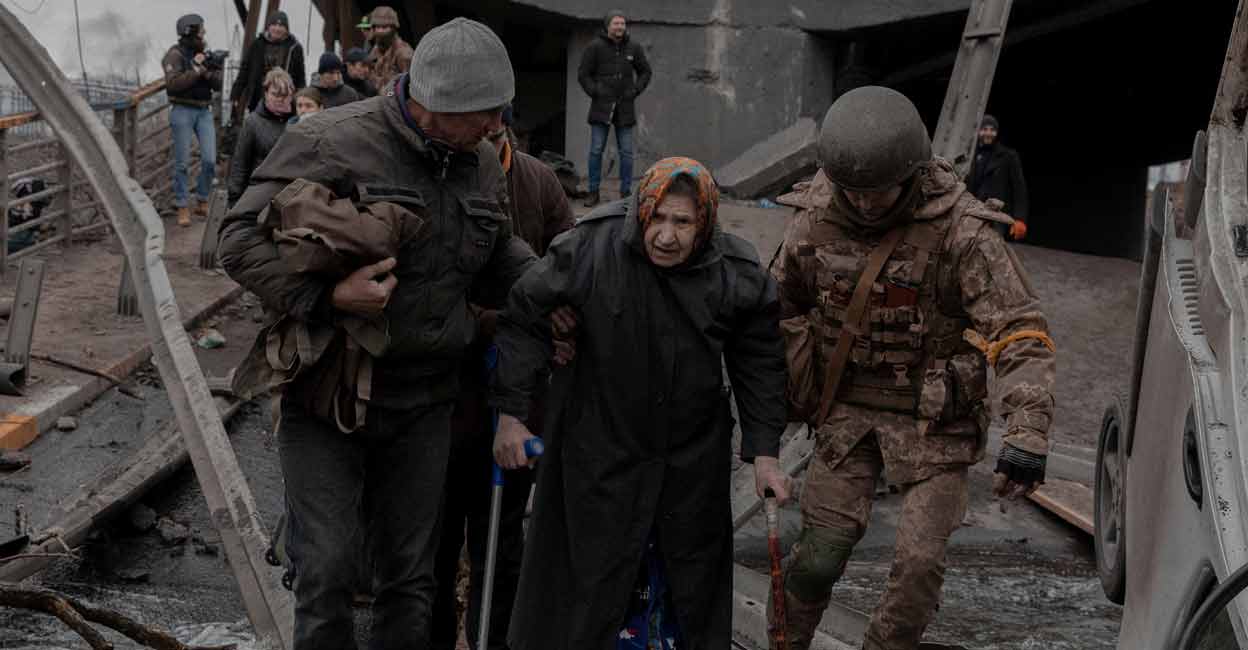
While Russia's advance in the north on Kyiv has been stalled for days with an armoured column stretching for miles along a highway, it has made more progress in the south, pushing east and west along the Black and Azov Sea coasts.
Moscow has acknowledged nearly 500 deaths among its soldiers, but Western countries say the true number is much higher and Ukraine says it is many thousands. Death tolls cannot be verified, but footage widely filmed across Ukraine shows burnt-out wreckage of Russian armoured columns and Ukrainian cities reduced to rubble by Russian strikes.
In Russia itself, the authorities have imposed a near total blackout on non-official information. The last significant independent broadcasters of the post-Soviet era were shut last week, and a new law threatens long jail terms for reporting deemed by the authorities to discredit the military. Many foreign news organisations have suspended reporting from Russia.

